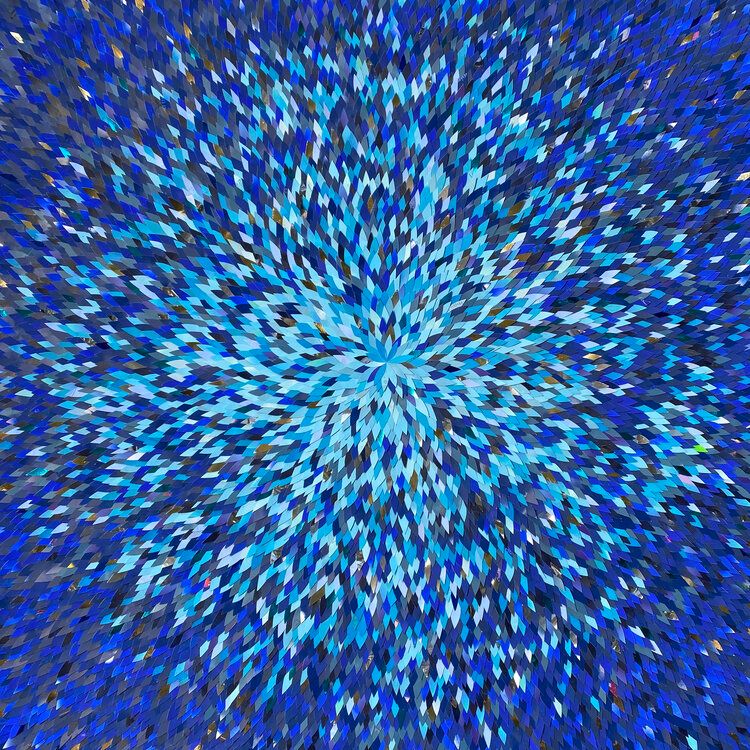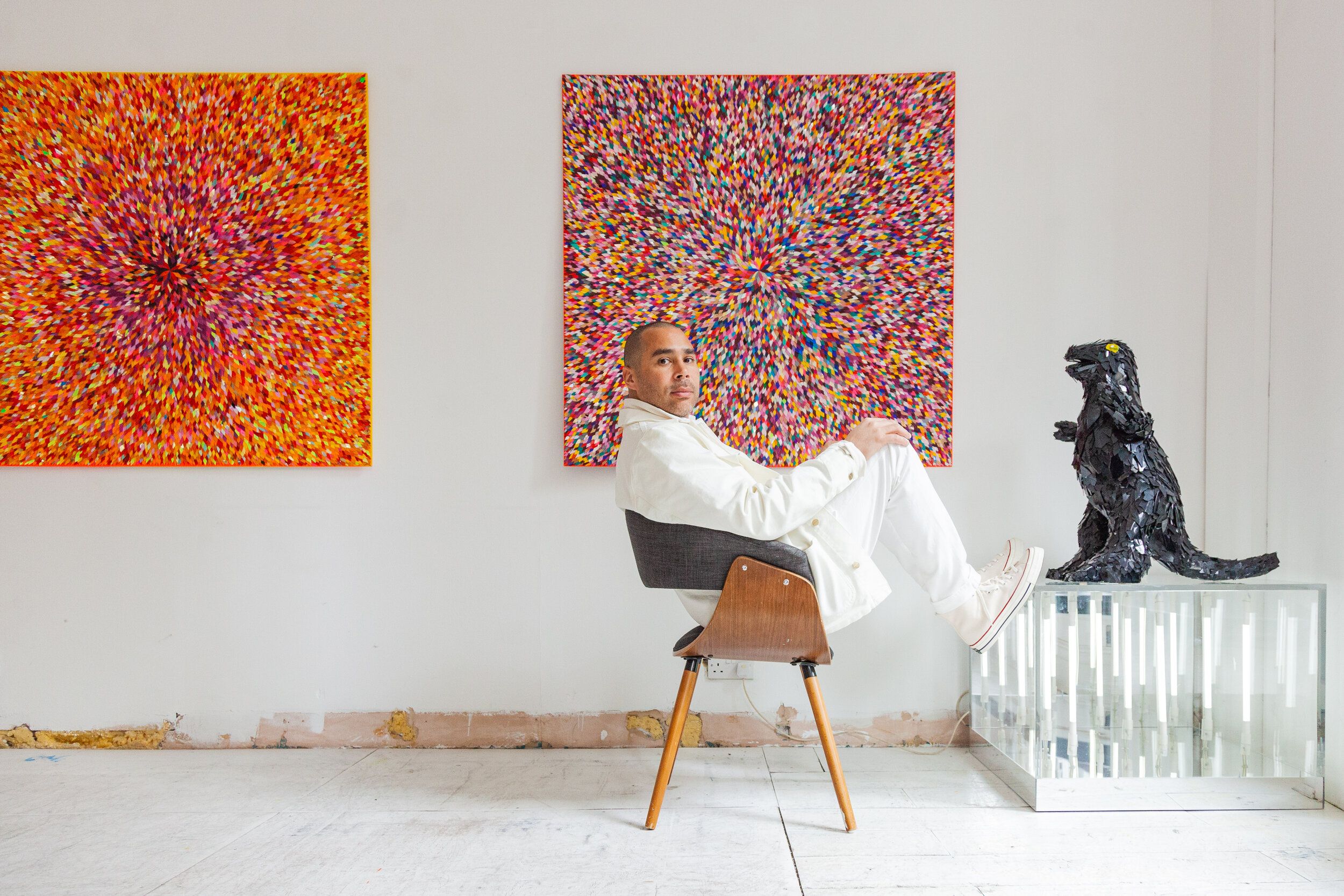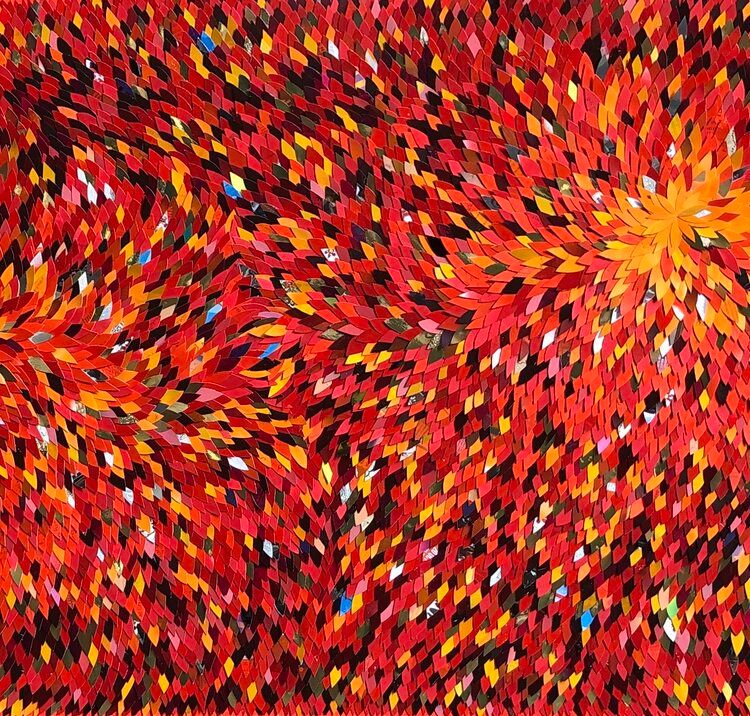
The mixed-media British artist, Robi Walters has carved a unique space in the landscape of modern art, creating intricate collage pieces that have their conceptual foundation in sacred geometry, and the buddhist symbology of the thousand petal lotus – exploring the transcendental calm the artist seeks to achieve in his meditation practice. Employing the discarded flotsam and jetsam of consumerism, Walters produces kaleidoscopic works that are nothing short of hypnotic, expressing a profound sense of the infinite, while transforming every space they occupy with explosive and vibrant colour. It's perhaps unsurprising then that the artist has attracted the attention of some of the world's most prestigious brands in recent years – those for whom he has created unique collaborations including the likes of Dr Martens and Aston Martin, for whom he is currently artist-in-residence. Here the free-thinking self-taught artist, talks exclusively to Culture Collective about growing up in the care system, taking the long-view, and creating works that explore the nature of time.
What is the creative process that goes into your artwork?
The process of making my work takes a lot of time, and it’s intended to slow the person down who is viewing it, in order that they can really absorb it. The conversation that comes after is so often: ‘What’s that made from?’ And when I explain it’s made from recycled material left over from consumption, we always start to get in to a much deeper conversation, and one that hopefully can have some impact and change. Let’s say, for example that maybe the viewer works for a big brand, and they start thinking much more about the packaging, and whether what they are putting out there is disposable. It’s all about triggering a philosophical way of thinking, or looking at something more deeply.

What is most valuable to you as an artist?
Time is the most valuable resource that we have, you have nothing if you don’t have time. It is like a foundation and the building blocks of you being a person–you being in good health, you having a place in this world, having relationships and so on is all to do with time. There is nothing without time. In the work I’m making, I take things that people throw away and make them beautiful again, which is about the transformation of the way you perceive and see something over time, so someone might say see a pile of rubbish, but I see a beautiful piece of art that hasn’t been configured yet. I use sacred geometric patterns to reconfigure that waste inspired by the thousand-petal chakra, which is a meeting point between the infinite and the physical.
What disciplines do you follow to maintain balance?
I tend to focus on mindfulness future ways of thinking. And that is important, because if you’re not preparing yourself for the future now, then the future is going to be way over there before you know it. I’m very aware as an artist that I am making work that might not even be relevant yet–it may be a philosophical thought for the future that comes to makes sense much later, but I’m all about the slow-burn. Some people might not get my work but that is okay, because I think we need to have difficult conversations in order to move in directions where things can become harmonious for all.

How important is recognition for you as an artist?
I was a people-pleaser when I was young because I was moved around so much in the care system. I wanted to make everyone else happy at the cost of myself and, of course, that strategy does not work. I’m always aware that you can’t please all of the people all of the time, and I’m really not trying to. It’s taken me most of my life to realise that I can only be me, and hopefully that is reflected in my work. I’m not there to convince someone to like something–that’s not my intention. It’s enough for me that some people when they see it go into a very personal journey, and that is very special.
Find out more at robiwalters.com